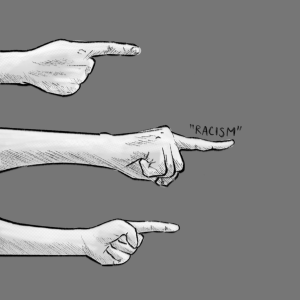The Politics of the 2022 Beijing Olympics

Politics are center stage of the 2022 Winter Olympics.
March 8, 2022
Let the games begin! This famous phrase that traditionally rings with anticipation and excitement has become oddly politicized in recent months. The 2022 Winter Olympic Games in Beijing are anything but politics free and the question that begs to be answered is, “why?” Hosting the Olympics is never all “fun and games.” This was well portrayed when, in 2021, thousands of Japanese citizens spoke out against their government hosting the 2020 Summer Olympics in the middle of a COVID-19 surge.
However, this massive sporting event—the largest in the world— was political even before COVID-19. The 2008 Beijing Olympics were critical for China: putting on an impressive show would prove to the world that the country had moved on from its turbulent past, but anything less than would smear China’s international image. The Beijing Olympics were an incredible success and sign of the power of the Chinese state. Today, things are a little different. China is no longer looking to affirm its spot on the global political sphere; it is a major player in politics and economics.
While Chinese officials have spoken of unity, teamwork, and collaboration, reporters have seen a clear divide between the Chinese and other delegations. Under its new zero-COVID-19 policy, China has set authoritarian protocols that have allowed the state to shut down cities of millions in response to one or two positive cases. With Olympic athletes from around the world traveling to China, it is of utmost importance to the Chinese government to prove its legitimacy and superiority to the world by leaving no room for outbreaks.
Athletes from around the world have been warned against surveillance and tracking by their respective Olympic committees. American athletes were even encouraged to bring burner phones to China, by which they would upload their COVID-19 trackers, so their private information could not be tracked.
However, the major political conflict of the games lies in the boycott from nations like the US, Great Britain, Canada, and Australia. While athletes from these nations are still allowed to compete, ambassadors from those countries will not be joining Chinese diplomats in as President Biden put it in an interview with AP News—“publicizing the fanfare” of the games. Specifically, the boycotts are to protest the forced re-education of Muslims in internment camp like conditions western China.
Surprisingly, prominent leaders of majority-Muslim nations like Turkey, Pakistan, and Saudi Arabia have not boycotted these games. And despite the official ban on Russian delegations due to doping, Russian president Vladimir Putin was present in the box beside Chinese president Xi Jinping. Now, what does all of this really mean? Are there serious implications, or is this just political performance? While this boycott may not cause any dramatic repercussions, it seems to be a sign of something yet to come. The world is slowly merging into two large blocs that may revolve around relations with China, and the Olympics are just one sign of this.









